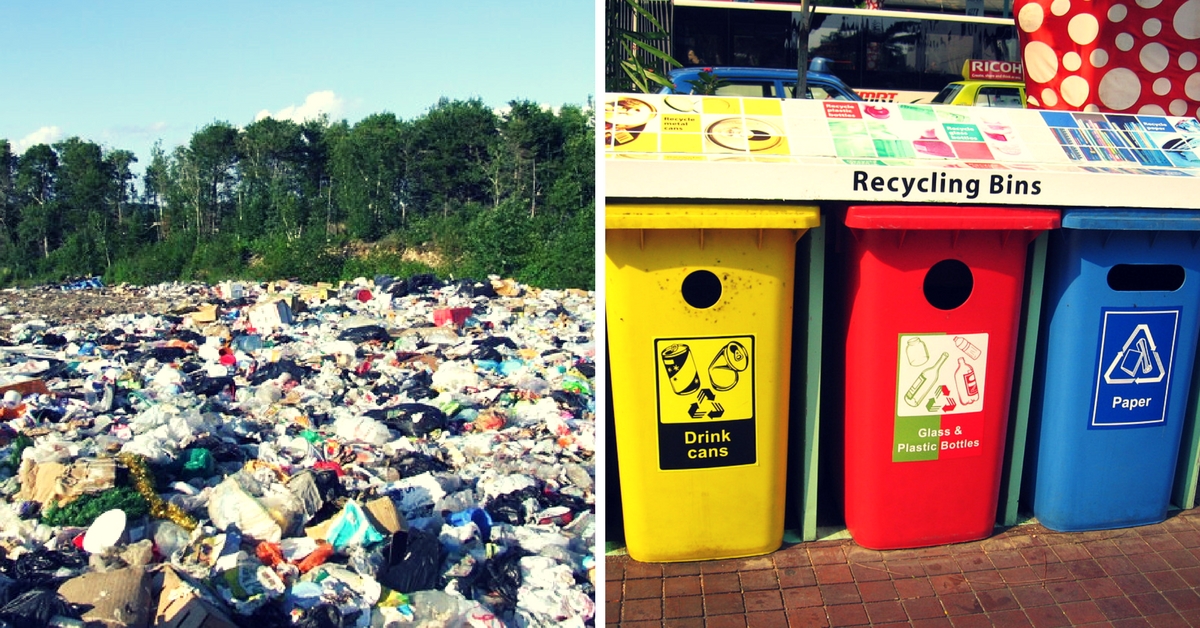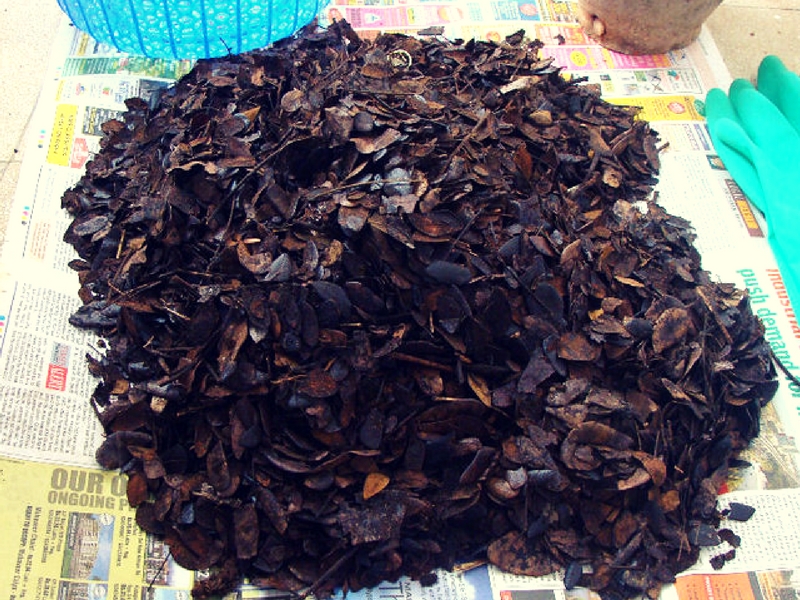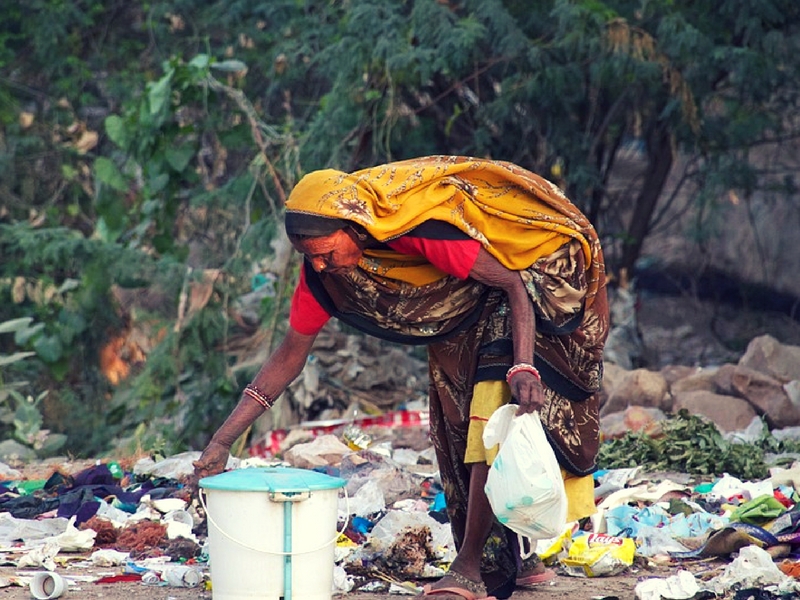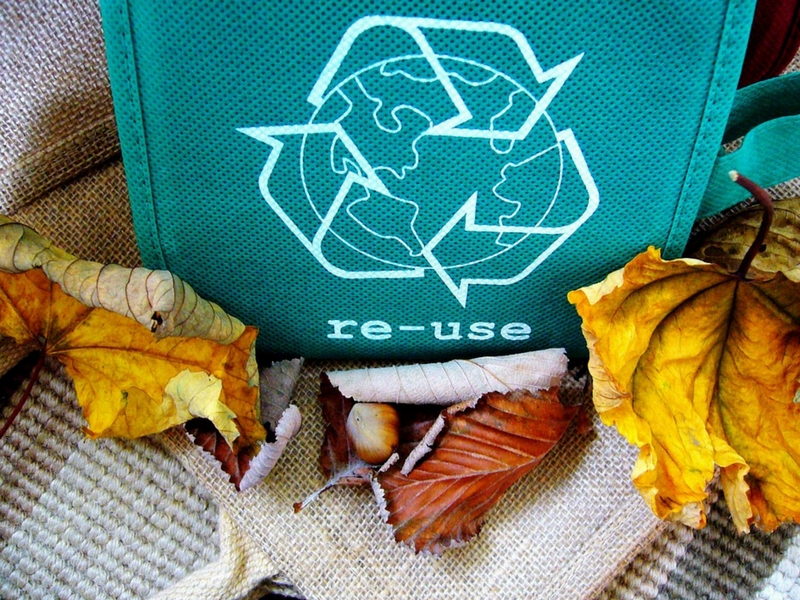A Small Town in West Bengal Helped Kolkata Win a Global Award for Waste Management
Uttarpara is a small town with a population of 1.9 lakh and the municipality there has done a great job of turning waste to wealth.

It was a moment of great pride when the Kolkata Solid Waste Management Improvement Project received a global award in the urban solid waste management category at the C40 Mayors’ Summit held in Mexico City on December 1 for its unique and effective solid waste management programme focussing on segregation of waste at source.
The impressive work done by the 163-year-old Uttarpara-Kotrung municipality helped the project win this award. Uttarpara is a small town with a population of 1.9 lakh and the municipality there has done a great job of turning waste into wealth.
Before the project began, the town had towering mounds of garbage that led to contamination and destruction of water bodies, aquatic life, animal life, etc. Today, all the waste in Uttarpara is segregated at source and is collected by municipal workers every day. Biodegradable and non-biodegradable waste is kept in separate chambers of the van and dumped separately at the transfer centres. It is here that the non-biodegradable waste is stored and compressed in compactor machines and later dumped at sanitary landfill sites.
The municipality provides rag pickers with masks, gloves, gumboots, and uniforms. A compost plant converts all the biodegradable waste into bio-manure. The plant has the capacity to produce 10 tonnes of manure every day. This manure is sold over the counter and through marketing agents. At present, the municipal body collects 12-14 tonnes of waste every day and produces 3-4 tonnes of manure daily.
The Uttarpara municipality collects waste from the sewerage system as well, using suction cum jetting machines. “We have a plan to cover all drains across the town,” said civic chief Dilip Yadav, who received the award in Mexico City.
Here are some other Indian cities with great solid waste disposal systems:
1) Alleppey (Kerala)

Photo Source: Wikimedia Commons
Under the ‘Nirmala Bhavanam, Nirmala Gagaram’ (Clean Home, Clean City) initiative, the Alleppey municipality set up biogas plants, pipe composting system, and aerobic composting system units to convert waste into compost. The municipality installed biogas plants at households and in public places, both fixed and portable. According to Down to Earth, the pilot project soon turned into an infectious success across 40,000 households in 52 wards. This was a result of protests in 2012 that led to shutting down of the Sarvodayapuram dump yard where the municipality had been dumping the city’s garbage for decades. Surveillance cameras were also set up to catch those who littered in public. Known for its crystal blue backwaters, Alleppey saved nearly 11 lakh on transportation and LPG bills. The number of garbage trucks on roads reduced and revolutionised the city’s waste disposal system.
2)Mysuru (Karnataka)

Photo Source: Pixabay
It is a team effort between residents and the municipality in Mysuru to ensure complete recycling of the generated waste as part of a citizen initiative ‘Let’s Do It Mysore.’ Mysuru produces just 0.45 kg garbage per person in a day. Residents are trained to segregate wet organic waste from dry waste using different coloured bins. Pourakarmikas, or community waste collectors, go door-to-door for collection from 6.30 am onwards everyday. Wet waste is converted into manure within 35-40 days while the dry and non-biodegradable waste is sent to recyclers on a weekly basis. This garbage is segregated into 24 categories, labelled and sold to scrap merchants who then sell it to factories and businesses for reuse.
3)Panjim (Goa)

Photo Source: Pixabay
Had you visited Panjim in the 1990s, you would have been greeted by stinking mounds of garbage on a hillside outside the city. But heavy rains and a garbage landslide changed that in 2003 when angry citizens demanded a new policy on waste disposal. Today, waste management is carried out at three levels: collection and segregation, transportation and intermediate storage, and treatment and processing. It has become a bin-less city with five categories for waste segregation – wet waste, plastics, paper and cartons, glass and metals, and non-recyclable material. Each colony has compost pits where all households dump their wet waste while sorting centres in the city help segregate dry waste. Non-recyclable material is compressed into small bales and delivered to cement factories in Karnataka.
Know more about Uttarpara-Kotrung municipality here.
Like this story? Or have something to share? Write to us: [email protected], or connect with us on Facebook and Twitter (@thebetterindia).
This story made me
- 97
- 121
- 89
- 167
Tell Us More
We bring stories straight from the heart of India, to inspire millions and create a wave of impact. Our positive movement is growing bigger everyday, and we would love for you to join it.
Please contribute whatever you can, every little penny helps our team in bringing you more stories that support dreams and spread hope.



















